Ella Fitzgerald: Just Why Is She So Important?
From the blues to bossa nova and calypsos to carols, she imbued all with her unique voice. Ella Fitzgerald will live forever.
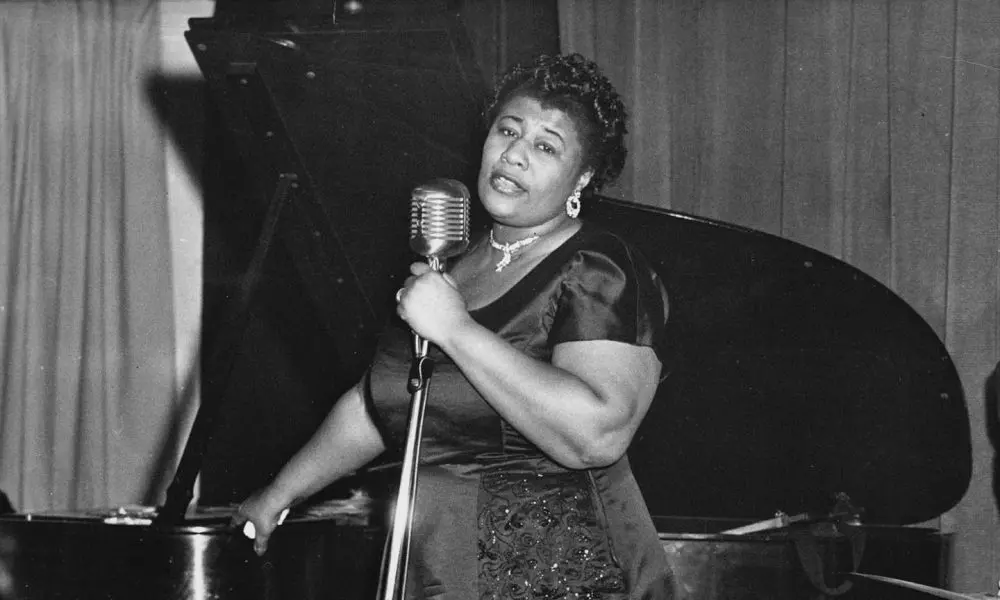
Born on April 25, 1917, if not quite at the dawn of the recorded music era, then during its infancy, Ella Fitzgerald has done more than most singers to fill the world with beautiful music and spread the joy and the love of the Great American Song Book. But what is it that makes Ella so important? Or as Mel Tormé put it, “She was the best singer on the planet.”
Listen to the best of Ella Fitzgerald on Apple Music and Spotify.
Big band beginnings
As a teenager she bunked off school, worked for the Mafia, and lived on the streets, so it is perhaps surprising that her purity of voice has beguiled audiences since she first recorded with Chick Webb’s Orchestra in 1935. Like so many singers from the era of the big bands, Ella’s job was to perform live for dancers at clubs and ballrooms and then to go into the studio to sing the pop songs of the day, whether they truly suited her voice, or not. As often as not these songs better suited the band than the singer.
It wasn’t until the summer of 1938 that Ella found real success and when she did it was with a 19th-century nursery rhyme that was brought up to date by Van Alexander who regularly sold arrangements to Chick Webb. “A-tisket A-tasket” hit the right note with record buyers and it made No.1 on the American hit parade. A year later Webb passed away from spinal tuberculosis and for the next few years, Ella kept his orchestra together, billed as Ella Fitzgerald and her Famous Orchestra.
However, it was a struggle to keep it going; the band members were very demanding and Ella, barely in her twenties, found their demands difficult to rebut. In the summer of 1942 things came to something of a head when the American Musician’s Union (AFM) called a strike for all its members, which put an end to recording. Decca Records, Ella’s label, came to an agreement with the AFM in late September 1943 and instead of putting her back with her Orchestra, Decca teamed Ella with another of their prized recording assets, The Ink Spots. The result “Cow-Cow Boogie” made the Billboard Top 10. Later in 1944, the same pairing scored a No.1 with “Into Each Life Some Rain Must Fall” coupled with “I’m Making Believe.”
Having had this success Decca tried to replicate the formula with recordings with Louis Armstrong, Louis Jordan, The Delta Rhythm Boys, and The Song Spinners and there were some modest hits. One of these was her last chart success of the decade, “Baby It’s Cold Outside” with Louis Jordan, from the Esther William’s 1949 film Neptune’s Daughter. The problem was, no one at Decca could work out what Ella should be singing solo.
A career sea-change
Ella at her live performances was increasingly embracing be-bop during these years, touring with Dizzy Gillespie’s band and while their gigs did good business at the box office, the music they made together was never going to sell a million records. In 1949 Ella made her first appearance at Jazz at the Philharmonic, which marked a sea change in her career. From this point on, Ella seemed to rise above the fray and to elevate herself to a musically higher plane.
As the 1950s rolled around, Ella’s appearances on the Billboard charts were infrequent, but this was by no means a reflection on the quality of her recordings. Songs like “I’ve Got a Crush on You” were stunning, pointing to the direction in which Ella was heading; it and several other brilliant recordings from this period are available on the album, Pure Ella. The public liked them too, meaning that by 1954 she had sold over 20 million records, which put her up there with the most popular singers, black or white.
Meeting jazz’s biggest advocate
Norman Granz who founded Jazz at the Philharmonic and Clef Records was completely enamored by Ella, but couldn’t understand why Decca didn’t record her singing what he thought was the right material. Granz became Ella’s manager just prior to a JATP tour of Europe in 1954. Probably with some coercion from Granz, Decca allowed Ella to record with Ellis Larkins and the album they produced, Songs in a Mellow Mood is fabulous. The following year Ella recorded with an orchestra conducted by the 25-year-old Andre Previn and soon after with Benny Carter’s orchestra – songs like “It Might as Well Be Spring” and “I Can’t Get Started” (Previn)
“Between the Devil and The Deep Blue Sea” and “Ol’ Devil Moon” (Carter) were much more in keeping with the direction that Norman Granz wanted for Ella. Ella’s last session of her 21-year recording career for Decca was on August 5, 1955, she had moved on from being a “singles” artist, and needed to be presented in a way for which the long-playing record was ideally designed. Like Frank Sinatra, who had similar issues at Columbia Records a few years earlier, Ella went from being “The First Lady of Song” to “The Voice of Jazz” and it really was all thanks to Granz and Verve Records, the label he created for Ella.
Establishing the Ella songbook
On February 7 at Capitol Records studio in Los Angeles, the same studio in which Frank Sinatra recorded all his classic albums, Ella recorded ten songs that would be included on Ella Fitzgerald Sings the Cole Porter Song Book. It is essential listening – no self-respecting lover of music should live without this wonderful music. It was the start of the Song Book series of albums that helped define what a long-playing record should be like and at the same time established Ella as the greatest female vocalist of the last 100 years.
Dip into any one of her Song Books, pick any track at random and you will hear perfection. Everything from the arrangements, the musicians, and the songs themselves create the perfect blueprint for Ella’s voice. Ella was 38 years old when she recorded her first song book and her voice was honed to perfection. Whether she is singing a straightforward ballad or love song or something with more than a hint of jazz about it she purrs and swings. There can be no one who has heard these records and not been totally beguiled.
It was also in 1956 that Ella recorded again with Louis Armstrong. Following a gig at the Hollywood Bowl the day before, they went to Capitol’s Hollywood studio to record Ella and Louis, arguably the greatest album of jazz duets ever. The following year they recorded Ella and Louis Again and Porgy and Bess; the latter is one of the most beautiful recordings ever made.
It wasn’t until 1964 that Ella completed her songbook cycle with the Johnny Mercer album. In between, there were numerous other albums with arrangers like, Russ Garcia, Paul, Weston, Quincy Jones, Frank DeVol, and Nelson Riddle all adding their shimmer and gloss to a career that was the kind that other singers aspire to.
Ella’s later career while not climbing to the dizzy heights of her decade with Verve Records still produced memorable highlights, as did her concert performances around the world. In 1980, Granz, who still managed Ella, came up with the idea that was almost a songbook, Ella Abraça Jobim; her tribute to the brilliant Brazilian songwriter. She also returned to the Gershwin canon with her old friend, Andre Previn.
Leaving her final musical mark
In 1987 Ella did her third album with the brilliant guitarist, Joe Pass; it was also the year she needed to have open-heart surgery. Two years after that she recorded her final studio album, appropriately entitled, All That Jazz. In 1992, she had both legs amputated below the knees because of complications arising from diabetes. In 1991, Ella who once said, “the only thing better than singing is more singing”, gave her final concert at New York’s Carnegie Hall.
Ella passed away on June 15, 1996, leaving the world a better place from her magical gift to sing and swing better than it seemed possible for anyone to do. And to conclude on what makes Ella so great it was in part her diversity.
She started out a swing singer, moved to bebop, she sang perfect scat, was an extraordinary jazz vocalist, and had no fear of modern material as the 1960s and 70s came along. From the Blues to bossa nova and calypsos to carols she imbued all with her unique voice, sounding forever young. She was blessed with a three-octave range and diction and enunciation that was like Frank Sinatra’s……as good as it gets. Ella will live forever, or until people stop listening to music.
Listen to the best of Ella Fitzgerald on Apple Music and Spotify.


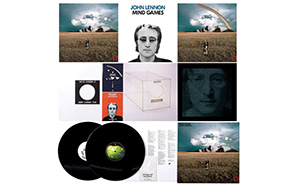
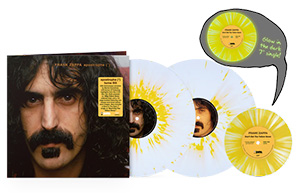

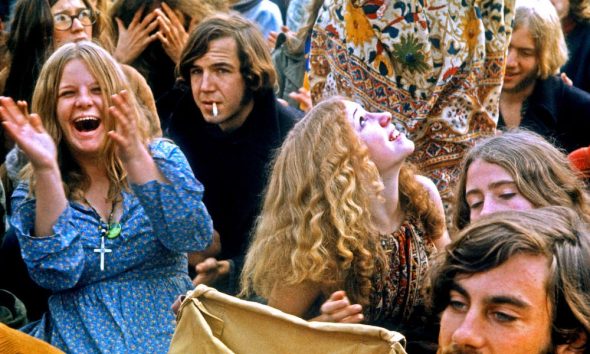
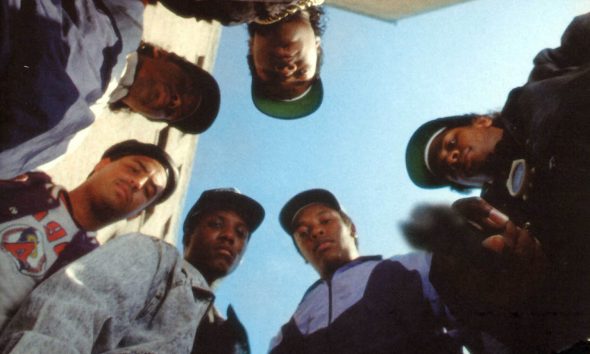

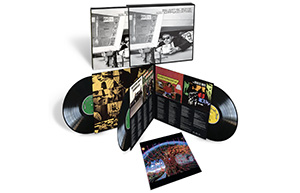

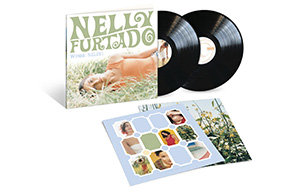
Kaleo
April 25, 2017 at 7:11 pm
She was good but, by no stretch of the imagination, was she the greatest. Probably, not even among the top five. Billie Holiday was and is the best Jazz vocalist. Jimmy Scott and Etta James were better than Ella.
Bill Neil
April 25, 2017 at 10:38 pm
To my mind, she had the best voice of all the singers. I loved her voice which was better then Eydie Gorme, Doris Day, Dinah Shore, Nancy Wilson, and countless others. Her enunciation was so pure that I did not know that she was Black. The Cole Porter Songbook was simply love and I miss her even though I am an old man. There was something different about her rich voice that made me feel loved and accepted that none of the other singers could do for me. Yes, the good singers from the big band era are gone and when it comes to today’s music. I wish I were gone with them.
Paul S
April 26, 2017 at 12:00 am
“There was something different about her rich voice that made me feel loved and accepted that none of the other singers could do for me”
I’m not sure there is an accurate way of making a measurable range of music I enjoy in relation to my barely begun life, because nothing thrills me more than hearing a live band or artist, and I try to find it as often as possible. A sizable portion of that range may not be what many older folks would understand another having an appreciation for, but beyond any reasonable doubt, Mrs. Fitzgerald’s voice is a steadfast reminder that kids my age need to slow down and take time to appreciate the finer things, because isn’t another who sounded any more comely or quaint. I’m at about 40,000+ songs—not including several hundred vinyls that I’m not currently able to listen to—and I have to say that there isn’t a woman who who gives me more a reminder that things will eventually turn out okay than this woman who may have passed, but will never be forgotten. It’s almost impossible to discuss a fondness for big band or swing or jazz with the vast majority of people under 30 without feeling entirely odd, but I hope the people that still take the time to listen to her always know she’s incomparable, irreplaceable, beyond a doubt the very meanest lady in the history of singing, and undoubtedly a great inspiration for those that achieved great things after going through even more daunting struggles.
Happy 100th Birthday Mrs. Fitzgerald—may you music and memory live forever.
Paul S
April 26, 2017 at 12:06 am
Also…
A (better) book that may sometimes be difficult to believe in or abide by says this life isn’t the one that’s supposed to matter; I’m certain she’s in a far greater place, singing for kings there.
Long live the queen of jazz
<3
Jo W
April 26, 2017 at 11:31 am
Ella was the greatest singer ever to me. She conveyed the words, spirit and tune of a song as well as any singer, but her voice was richer and purer than most, her pitch bang on and her improvisation so beautiful that she will never be surpassed, or even matched, I suspect. To hear her is to love her. She always makes me smile.
Alexandre
April 26, 2017 at 8:30 pm
I Love You Dianh
Michael Maehle
April 27, 2017 at 12:16 am
Ella is the benchmark. Her version is what all other versions are compared against. Purity of tone, flawless diction, and impeccable rhythm. Possibly the most recorded English language voice of the last century. And soooo much fun to listen to!
christiane menin
April 27, 2017 at 5:44 am
I work for her , like a cook , before she die I love her , when she coming down for breakfest and sing Aqua the beber ,my heart pumping and i cry She was a beautiful Lady
Terence John Healy
April 27, 2017 at 9:49 pm
I saw Ella in concert several times in the sixties in England and in 1991 at the Hollywood Bowl in LA. For me she was the greatest singer of popular song but Billie Holiday was the best Jazz singer. Sarah Vaughan comes next with her musical ability to blend with her instrumentalists and to scat in tune.